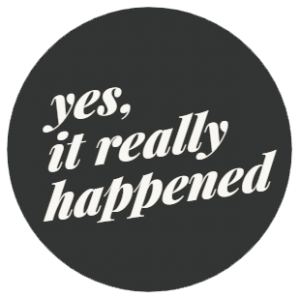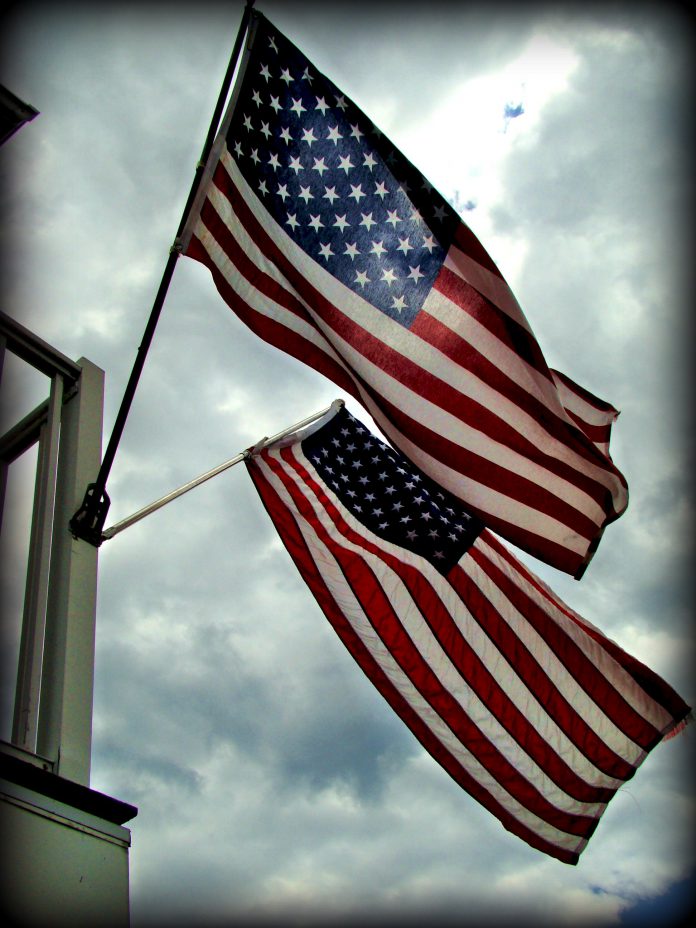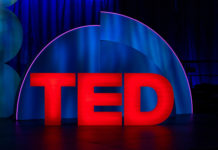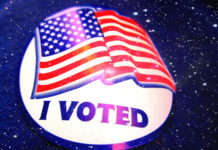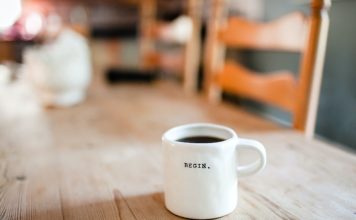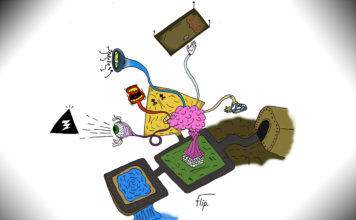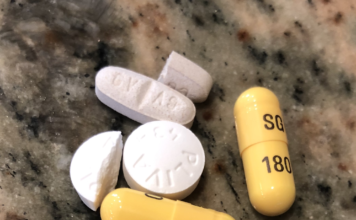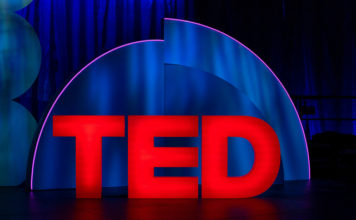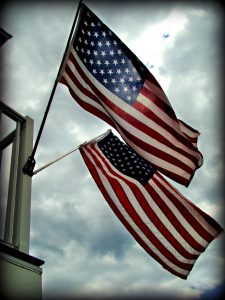 My relationship with our country and its symbolisms is a complex one. I’m not a flag waver. I’m not a flag burner. I grew up with both in my family. I broke bread at the same table as the patriot and the hippie. It was interesting, as a child, to watch these two men eat meals together, knowing that they could not possibly be more different, yet there they sat, respecting each other and both loving my grandmother’s amazing whipped potatoes. Those potatoes transcended mere mashed potatoes – she whipped those taters til lumps were a distant memory. I didn’t even know mashed potatoes could have lumps until I was in high school.
My relationship with our country and its symbolisms is a complex one. I’m not a flag waver. I’m not a flag burner. I grew up with both in my family. I broke bread at the same table as the patriot and the hippie. It was interesting, as a child, to watch these two men eat meals together, knowing that they could not possibly be more different, yet there they sat, respecting each other and both loving my grandmother’s amazing whipped potatoes. Those potatoes transcended mere mashed potatoes – she whipped those taters til lumps were a distant memory. I didn’t even know mashed potatoes could have lumps until I was in high school.
My grandfather was named Jack, and he was part of America’s greatest generation. He signed up to be a Navy fighter pilot before he was 18 and convinced his mother to sign the permission to enlist form by promising her he’d keep one foot on the ground. He never broke that promise – he brought a bucket of dirt up in his fighter jet every time he flew, and kept one foot in the bucket. Jack didn’t believe in lying. He landed jets on giant aircraft carriers in the middle of the ocean and passed his final exams with flying colors, identifying friendly and enemy aircrafts shown on a giant screen for just a fraction of a second. Some of his classmates found the answer key and cheated. Jack thought he should study anyway, and ignored the answer key. In the end, anyone who had used the answer key was dismissed – it had been a plant by the instructors to see who would lie, and it was designed to root out the liars. During visits home in New Jersey, Jack would fly his jet through rain clouds over the skies of Clifton so he could make it rain below for my grandmother, where she worked as a nurse in the hospital. The hospital staff would run for cover, unsure if it was Germany or Japan or friendlies. My grandmother knew it was Jack, courting her, changing the weather just for her.
As a child, I would visit my mom’s parents often, and my grandfather kept a flag on the front of the house. He would make sure he put the porch light on at dusk, so the flag was never in the dark. He showed me how to take down the flagpole, making sure the flag never touched the ground. I was desperately proud to share with him when I learned how to fold the flag, courtesy of my elementary school janitor when I was in second grade and at the school late one afternoon for a Brownie meeting. You need two people to properly fold a flag. There is something mesmerizing about the ritual, the importance of getting it right, the care with which you need to keep the folds of the triangle, so that there’s just the right amount left to tuck in at the end. The first time I folded a flag with my grandfather it was perfect. He was incredibly proud, of course.
At the other end of the spectrum, there was my father. Frank was drafted into the Vietnam war just after he turned 18 and graduated from Catholic high school. Ever the cut up and rebel, his poor grades kept him out of college, which meant there was no deferment. He went. He served. He came home a different human. Once as a child, I was snooping in his nightstand and found his purple heart medal. I was so excited he had been awarded a medal, I went running to my mom to ask her about my dad, the hero. She sadly shook her head, and helped me return it to its hiding place. She knew his demons better than anyone. My mother told me stories of how my father had returned home from his tour of duty in uniform, and as he came back onto American soil for the first time in years, war protesters spit on him and called him a baby killer. “He doesn’t like to talk about it,” she warned me. But still, I asked him. “What was it like?” I asked Frank. He told me a story about a stretch of land that his platoon had fought to win, and then marched on. The Vietnamese army then reclaimed it, since the Americans had left. His platoon went back to reclaim it again, and then marched on again. This went on for weeks. Towards the end the trees were riddled with bullet holes. In the middle of the night, a tree weakened from the firefights fell onto his tent, and landed on top of a metal pretzel tin that his Aunt Theresa had sent him as a care package. It kept the tree from falling all the way on top of him and his platoon, saving all their lives. The pretzel tin was crushed, and Frank and his tent mates crawled out from under the tree. His platoon marched away the next morning, leaving the disputed land once again. “Pointless, all of it,” was what Frank told me.
While I was in college, I received letters from both my grandfather and my father. Jack would type his letters on his old manual Underwood typewriter, as well as the envelope. I always knew when I got a letter from him, my name and address in Boston appearing in that distinct type. I always knew when I got a letter from my father as well. His was the envelope with the flag stamp – always upside down. When I explained to my now husband that this was Frank’s small protest against the government, Brian asked me why Frank didn’t just buy other kinds of stamps. The post office had zillions of choices. “No, that’s sort of the point,” I explained. “He served his country, and he’s not happy with the way they do things, so he needs to make it known.” “To who?” Brian asked. “Anyone who will listen,” was my reply.
Neither my grandfather nor my father were famous. Neither of them had a national audience. No one in the media cared what they thought of our country, its policies, its national anthem or its flag. But they shared their pride, their problems, their stories with me. And I was able to appreciate their differences and the lessons they brought.
In my humble opinion, the greatest thing about America is that we are able to critique where America needs to be better. That’s not a right afforded to everyone in the world. It’s a right that many Americans have fought for, and one that I take to heart. There are problems in America. We are not perfect. We have stories to share and differences to be heard. We can do things better on many fronts. Isn’t it our job as citizens to make that happen? And isn’t it our job as humans to recognize that our freedoms mean there will always be people who disagree with us, and celebrating the centrist reconciliation is not something to scoff at? When we look at the supposed utopias of literature’s The Handmaid’s Tale or The Giver, isn’t there something we are supposed to learn from art about what society would be like if we only lived in a place where one set of ideals were enforced? The similarities between those places – where there is no CHOICE – and the reality of life for people like Malala fighting the Taliban simply by going to school strike a chord that frightens me.
I know there are many citizens who say protesting the flag is off limits, and I respect that opinion. However, it’s an opinion. But this is not really about the flag. To say that my father was protesting the flag misses the point that he believed with his whole heart that his government participated in an unjust war. To say athletes are kneeling for the national anthem and disrespecting the flag is missing the point that they are asking us to recognize that something else is wrong. They have a stage, and they using it to bring light to an issue that is so important to them and makes them so passionate, that they are willing to endure national criticism and the spotlight of negativity in order to bring attention to the issue. Rosa Parks didn’t stay seated in the bus because she was protesting the bus schedule, just as the men and women who participated in peaceful sit-ins in Greensboro weren’t protesting the lunch menu – they wanted to be able to sit at the “whites only” counter at Woolworths. This emotion is something deeper and scarier and harder. We might not like how they get our attention, but once they have it, perhaps we could lend an ear. We hear you. We see you. We recognize what you are doing. Let’s break bread together and talk it through, with kindness and respect, which is what we should all do, all the time.
Whether you choose to stand, kneel, fold the flag into a tight triangle or mail its stamp upside down, as an American that is your choice. Let’s all respect each other in the process. Too much blood has been shed for us not to appreciate that it was given for freedom of speech and of ideas, whatever they might be, and whether you agree with them or not. To me, America is great when we agree to disagree, and then go break bread together, and find the part in the middle where we have commonalities. It’s our job as citizens to make our country better for the next generation. Not a just a place more like our own selves – but a better place for all.
